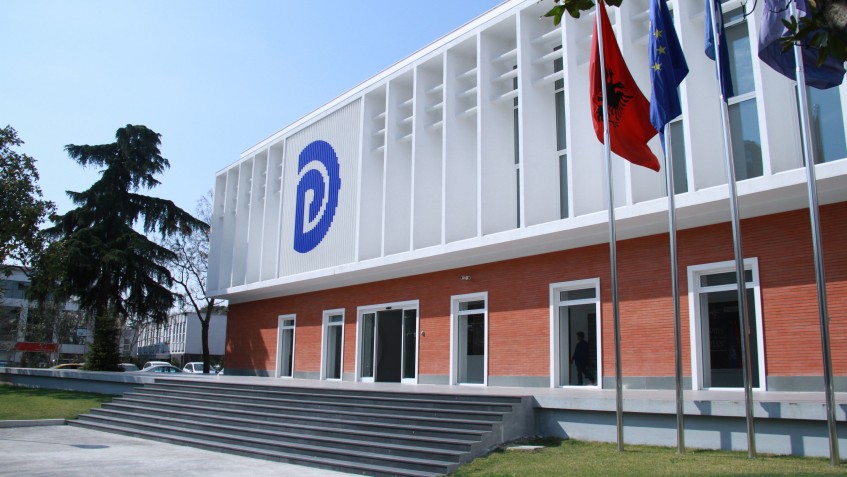Democrats begin coalition talks ahead of 2025 Elections

Photo: Democratic Party Headquarters
The Democratic Party (PD) has started meetings with allies to form a pre-election coalition for 2025. PD’s Secretary-General – the leader, Sali Berisha remains under house arrest on corruption charges – recently met with the Freedom Party’s Chairman, former President Ilir Meta.
Why is it important: For the opposition, a broad pre-election coalition is essential. Despite being in power for 12 years, the Socialists are better organized and currently favored in polls to win a fourth term. A strong coalition could be the key for the opposition to challenge their dominance.
Background on the allies: The Freedom Party, previously known as the Socialist Movement for Integration, is led by Ilir Meta, a former Prime Minister and President. The Democrats and the Freedom Party are not natural allies due to Meta’s left-leaning platform. Meta, initially a key figure in the Socialist Party, formed his own party in 2004 after disputes with then-leader Fatos Nano.
Despite a rocky history, Meta and Democratic leader Sali Berisha formed an alliance in 2009 when Berisha lacked a parliamentary majority to form a government. Meta became Deputy Prime Minister and Foreign Minister. The alliance faced challenges, including a major scandal when Meta was recorded seeking favors in return for a 700 thousand Euro bribe, yet it held until Meta sensed a shift in popular support and joined a coalition with the Socialists two months before the 2013 elections.
Meta and Berisha reunited in 2017 when Edi Rama decided that he would run in the elections without coalition partners, despite having nominated Meta for President just weeks earlier. Meta’s party, led at the time by his wife, Monika Kryemadhi, again joined forces with the Democrats. They took a controversial decision to resign their parliamentary mandates in order to force Edi Rama to resign, a move Meta still resents, blaming his wife for acting without consulting him. This decision has strained their political careers and personal lives, leading to their current divorce proceedings.
Coalition challenges and context: Following a series of constitutional changes in 2020, the traditional electoral coalition models were reformed. Coalitions now present a single candidate list under one logo instead of multiple party logos. This favors the Socialists that run alone, but complicates the negotiations of the Democrats and their potential allies over candidate selection and representation. This structure forces allies to agree on names and the distribution of seats, as votes will count toward the coalition rather than individual parties.
Recent electoral code changes add further complexity. Two-thirds of candidates are on open lists and receive direct votes, while one-third remain on closed lists, in safe positions, decided by party leaders. The mix makes it even more difficult to gauge the electoral weight of each ally within the coalition and foments grievances by aspiring candidates that risk eroding support and seriously complicate the decision-making process.
Negotiations between PD, the Freedom Party, and other allies will be intense as they finalize candidate selections and slot allocations. Another meeting between PD and PL is expected next week to conclude the agreement.
Looking ahead: The Democratic Party leader has promised that all candidates for internal and external electoral races must be selected through primaries. This promise introduces uncertainty, as it remains unclear if Democratic members will support Freedom Party candidates in these primaries. The next round of negotiations between PD and PL will be crucial to cementing their coalition strategy.


